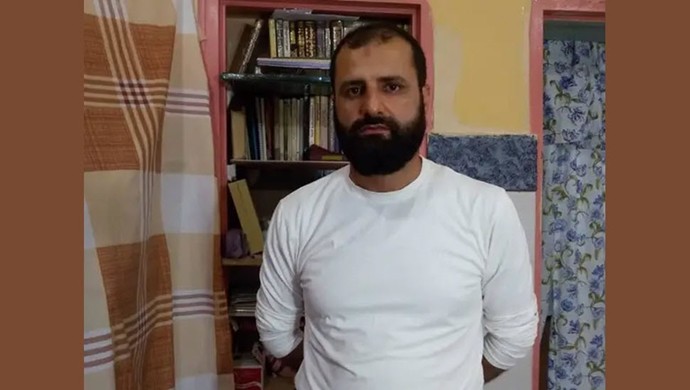

This execution, underscoring the regime’s relentless clampdown on dissent, follows a pattern of judicial actions widely condemned by international human rights organizations.
Farhad Salimi, a Kurdish prisoner of conscience from Saqqez, had been on a hunger strike for three weeks before his transfer to solitary confinement on January 20, a grim harbinger of his impending execution. Salimi’s death is part of a troubling sequence of events that began on December 31, 2023, when he, along with Anwar Khezri, Kamran Sheikhah, and Khosrow Besharat, commenced a hunger strike. This was in response to the transfer of fellow inmate Davood Abdollahi to solitary confinement in anticipation of his execution, signaling a heightened risk for their own lives.
The regime’s pattern of executing political prisoners has been relentless. Davoud Abdollahi met his fate on January 2, 2024, after a week in solitary confinement at the same prison. Prior to this, Kurdish prisoners of conscience Ghasem Abesteh and Ayoub Karimi were executed on November 5 and 29, 2023, respectively, at Ghezel Hesar Prison. Following these executions, security agencies reportedly coerced the families of the remaining prisoners into silence, promising the return of their loved ones’ bodies in exchange.
Tortured prisoner Farhad Salimi, from Iran’s Kurdish Sunni minority, faces imminent execution in Ghezel Hesar prison after transfer to solitary confinement yesterday. The authorities must stop his execution NOW. https://t.co/DqER0kRKoN pic.twitter.com/Nbi5Pi8RHO
— Amnesty Iran (@AmnestyIran) January 22, 2024
International outcry over these executions has been significant. Amnesty International issued a warning about Salimi’s imminent execution on January 22, demanding its immediate cessation. Iranian opposition President-elect Maryam Rajavi of the National Council of Resistance of Iran (NCRI), called upon the United Nations to intervene and save the lives of Salimi and Mohammad Ghobadlou, another political prisoner facing execution.
The legal processes surrounding these cases have been dubious and fraught with irregularities. No lawyer has had access to their cases, and the prisoners have consistently claimed that their sentences were based on forced confessions extracted under torture during months of solitary confinement. They were collectively charged with “corruption on earth” in a joint case.
.@UNHumanRights @UN_HRC
I earnestly urge all my fellow citizens, especially the youth in Tehran and Alborz, to protest against the unjust verdict condemning imprisoned protester, #MohammadGhobadlou, and Sunni political prisoner Farhad Salimi to execution. Both have been…— Maryam Rajavi (@Maryam_Rajavi) January 22, 2024
Despite being referred to the Supreme Court in 2019, their death sentence was upheld. Branch 38 of the Supreme Court rejected a retrial request on September 9, 2020. The seven prisoners, including Anwar Khezri, Kamran Sheikhah, Khosro Besharat, Davood Abdollahi, Farhad Salimi, Ghasem Abesteh, and Ayoub Karimi, were initially arrested in late 2009 and early 2010.
Their trial in early March 2016 at Branch 28 of the Revolutionary Court in Tehran, presided over by Judge Mohammad Moghiseh, resulted in their death sentences, reaffirmed by Judge Abolghasem Salavati of Branch 15 of the Revolutionary Court of Tehran in June 2018.
The execution of #FarhadSalimi, a Sunni political prisoner, after 14 years of incarceration, will only further strengthen the determination of Iranian youths and people to overthrow the malevolent mullahs’ regime.
My deepest condolences to the family and friends of Farhad, as… pic.twitter.com/9ZmkyZnt49— Maryam Rajavi (@Maryam_Rajavi) January 23, 2024
Compounding this tragic series of events, the regime also executed Mohammad Ghobadlou on the same day as Salimi. Ghobadlou, a youth arrested during the 2022 nationwide uprising, was similarly charged with corruption on Earth. These two executions are part of a larger, horrific pattern, with Iran experiencing over 360 executions since the beginning of the conflict in Gaza in October, including nearly 100 in the past month alone.

MEK Iran (follow us on Twitter and Facebook), Maryam Rajavi’s on her site, Twitter & Facebook, NCRI (Twitter & Facebook), and People’s Mojahedin Organization of Iran – MEK IRAN – YouTu







